
Why do we yawn?
Yawning is an involuntary mechanism that forces us to take in a deep breath. While several theories exist on why people yawn, the exact reason is unclear, says Eugene Chio, MD, assistant professor of otolaryngology at The Ohio State University Wexner Medical Center. It may help boost oxygen to the brain and expel excessive carbon dioxide. Some believe that it’s used to bring in cooler air to act as a radiator of sorts to cool the brain. There’s also a theory that yawning serves as a social cue and can show empathy, and this is why yawning can be contagious. Need to stop yawning in a hurry? Try these 8 ways to stop a yawn in its tracks.
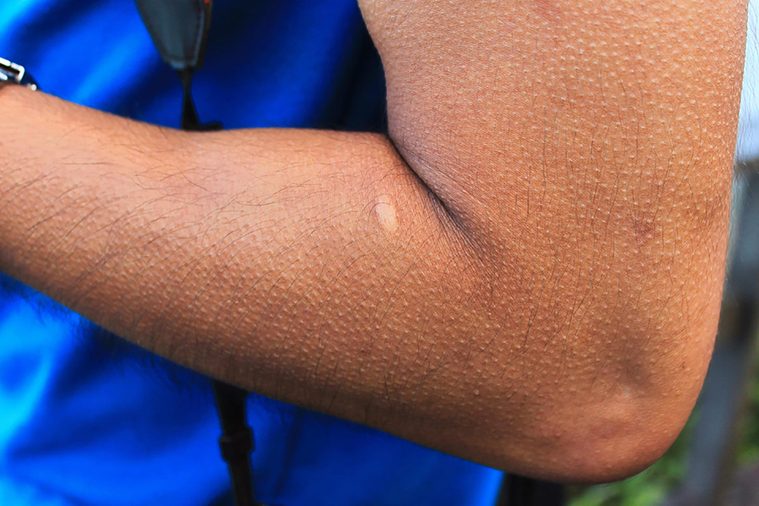
Why do we get goosebumps?
Goosebumps are due to the shrinkage of the skin cells around hairs, making the hairs stand on end. Because of that, many people think that the prickly feeling happens when the body is trying to keep itself warm. Yet as anyone who’s ever had their arm hair stand on end during a beautiful concert knows (it’s true that good music can give us goosebumps), there’s more to it than that. The primary reason people get goosebumps is that they feel a sudden surge of emotion, so the phenomenon is actually a good measure of how someone’s really feeling, according to a study published in Applied Physics Letters.
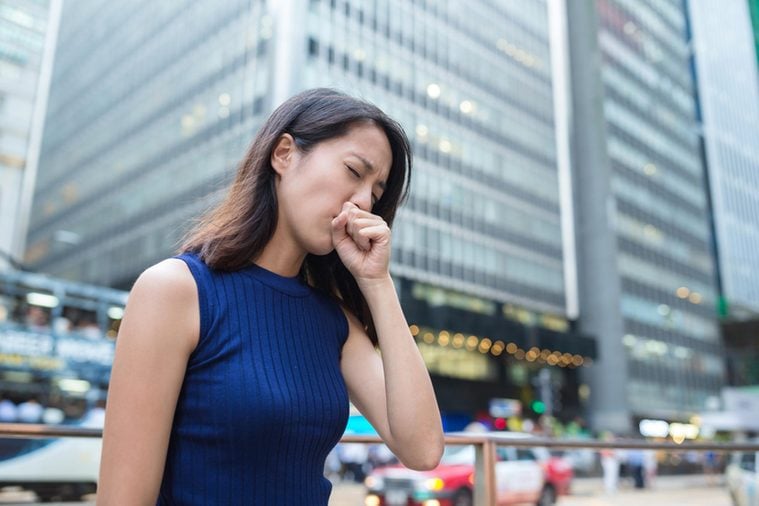
Why do we get hiccups?
All hiccups are a muscle spasm of the diaphragm muscle, the same way your eye sometimes twitches or your back sometimes twinges. But unlike twitches in your eye or back, hiccups can be a lot harder to pinpoint. “It may be caused by irritation of the phrenic nerve, the nerve controlling the muscle,” Dr. Choi explains. Whatever the cause, hiccups are usually fleeting and will resolve on their own, he says, but since they occasionally signal a mass or tumor pressing on the nerve, it’s wise to get checked out if you suffer from chronic hiccups. Oh, and that whole scaring-the-hiccups-away business? Old wives’ tale, unfortunately, so you can tell your spouse to stop sneaking up on you. Find out the 8 things hiccups may say about your health.
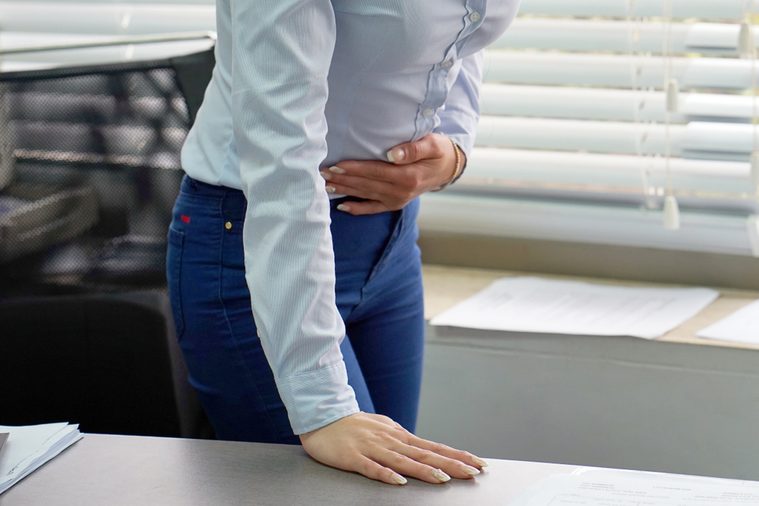
Why do we fart?
Bad news: Farts are as bad as they smell thanks to the fecal matter in tiny “poop particles” expelled with each gaseous blast. In fact, there’s been reported cases of farts spreading Streptococcus pyogenes, a bacteria that can cause tonsillitis, scarlet fever, heart disease, and even flesh-eating disease, says Mitchell Moffitt of ASAPScience, in a video explaining farts. But there is some good news: The simple act of wearing underwear and pants prevents the spread of most of these particles, so keep your drawers on and you are free to “crop dust” as necessary. (Seriously though, holding in farts isn’t the best idea.)
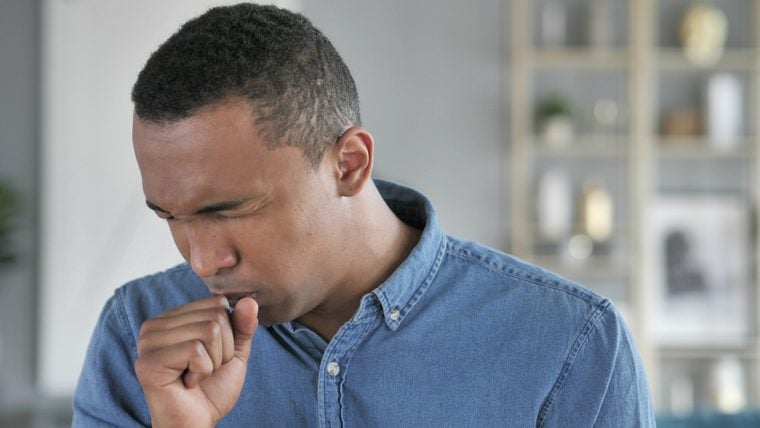
Why do we cough?
Coughs have a very important job; they are the body’s way of clearing out your airway. “During a cough, the vocal cords constrict, allowing for pressure in the windpipe to build up. Once the pressure reaches a critical point, the vocal cords quickly open, allowing for mucus to be expelled into the throat, and ultimately coughed up or swallowed,” Dr. Choi explains. They may not be fun, but this reflex protects you by keeping your airways clear of mucus and things like pollen, food, and liquid. That said, coughing can still drive you nuts and keep you from sleeping. If that’s the case, try these 10 all-natural cough remedies.
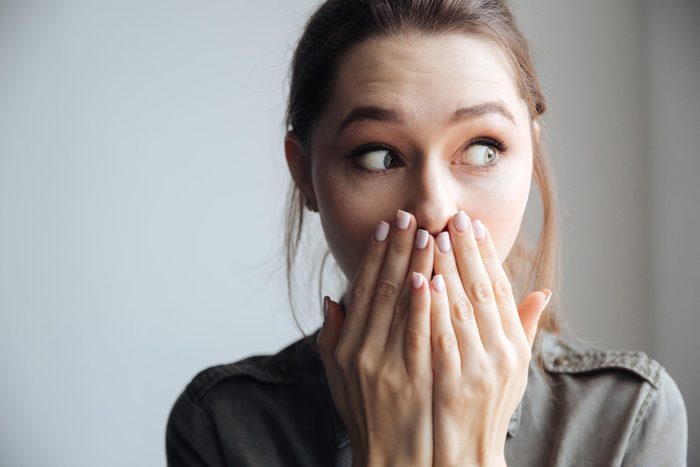
Why do we burp?
It’s not just babies who enjoy a good burp after a meal. Adults too are prone to post-meal belching. The reason: Burps are caused by swallowing air, and one of the primary ways people do that is by eating in a hurry, according to the American Academy of Pediatrics. Other causes of swallowing air can include a stuffy nose, crying, carbonated drinks, and fermented foods, among other things. So do what your mother tells you and slow down while you eat, blow your nose as needed, and avoid soda—even if you’re not a child anymore. Here’s how to tell if your burping habits are normal.
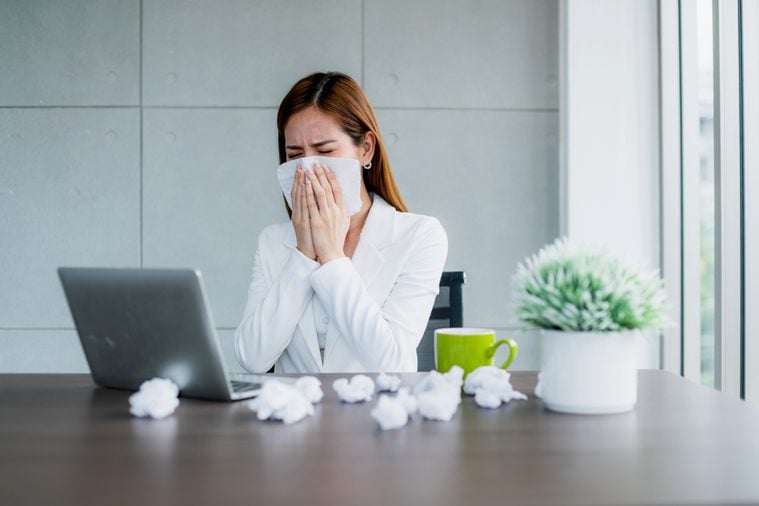
Why do we sneeze?
Gesundheit! Just like coughs, sneezes also act as a protection for your body by forcefully ejecting airborne irritants such as smoke, odors, pollen, or dust, along with germs like cold and flu viruses. You can’t help sneezing but you can control how you do it, and it’s important to sneeze into a tissue or your elbow, Dr. Choi says. “Covering up when sneezing can help prevent the spread of germs and viruses in the cold and flu season,” he says. “Particles from sneezes can travel up to 100 mph to a distance of up to 200 feet.” Whatever you do, don’t hold a sneeze in, as it can hurt you.
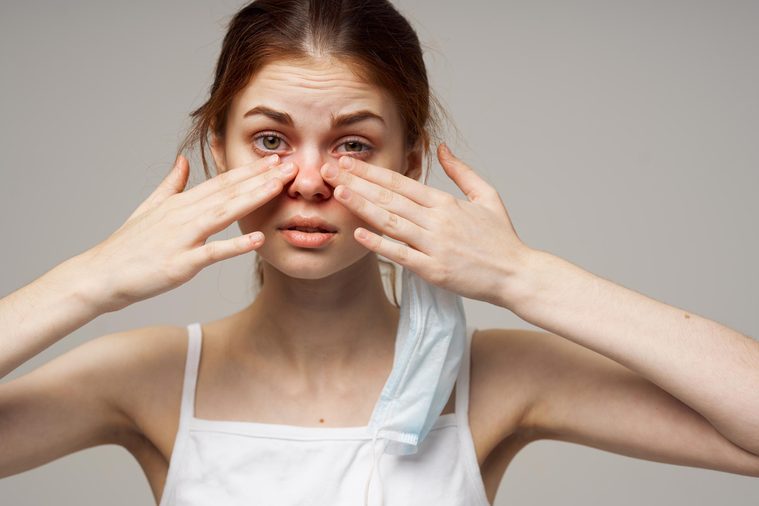
Why do we get eye goo?
Whether you call it “sleep,” “sand,” or “boogers,” that crusty stuff that forms in the inside corners of your eyes at night has a purpose. They’re caused by rheum, a fluid made up of mucus, skin cells, oils, and dust, excreted constantly by your eyes. When you’re awake, it simply gets washed down your tear ducts, but when you sleep it can build up, causing that sticky or crusty build-up. Generally eye boogers are not harmful but there are some situations that warrant calling your doctor—check out these 8 types of eye boogers and what they say about your health for more information.

Why do we have boogers?
Unsurprisingly, nasal mucus exists to protect your body from airborne debris, similar to sneezes and ear wax, but it does have one surprising property: Eating your boogers may be a magic health elixir, according to a study published by the American Society for Microbiology. Researchers found that picking-n-eating helped prevent bacterial buildup on teeth, strengthened the immune system, and even helped reduce respiratory illnesses. Boogers as medicine? Sorry, moms! Check out the 8 things your mucus can tell you about your health.
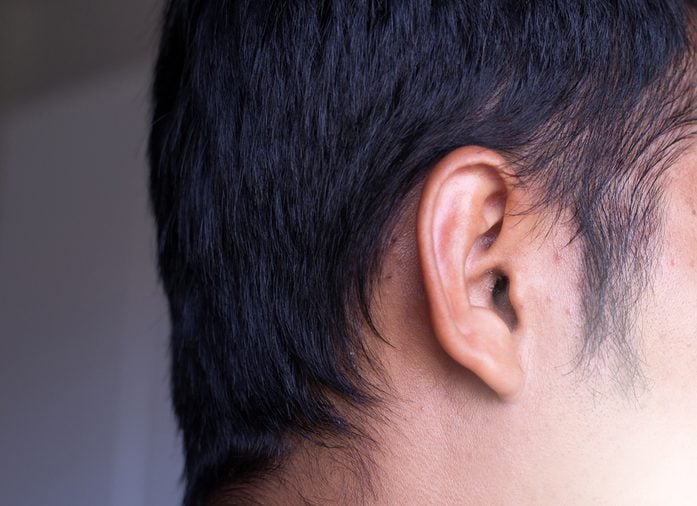
Why do we have ear wax?
Step away from the cotton swabs! We repeat, step away! No matter how good it feels to “clean” ear wax out, you’re not doing your ears any favors by removing it (or, as is more likely, just shoving it further down your ear canal), Dr. Choi says. Why? Ear wax has purpose, helping to condition and moisturize the skin in the ear canal while protecting your ear against bacteria, fungi, and insects. Plus, you’re only making things worse with the Q-tips, as overzealous removal of the wax can make your ears even itchier, he adds. Now that you know the body basics, check out the scientific explanations behind 22 odd body reactions.